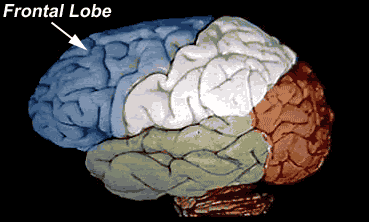
 Asperger Syndrome or (Asperger's Disorder) is a neurobiological disorder named for a Viennese physician, Hans Asperger, who in 1944 published a paper which described a pattern of behaviors in several young boys who had normal intelligence and language development, but who also exhibited autistic-like behaviors and marked deficiencies in social and communication skills.
Asperger Syndrome or (Asperger's Disorder) is a neurobiological disorder named for a Viennese physician, Hans Asperger, who in 1944 published a paper which described a pattern of behaviors in several young boys who had normal intelligence and language development, but who also exhibited autistic-like behaviors and marked deficiencies in social and communication skills.
Individuals with AS can exhibit a variety of characteristics and the disorder can range from mild to severe. Persons with AS show marked deficiencies in social skills, have difficulties with transitions or changes and prefer sameness. They often have obsessive routines and may be preoccupied with a particular subject of interest. They have a great deal of difficulty reading nonverbal cues (body language) and very often the individual with AS has difficulty determining proper body space. Often overly sensitive to sounds, tastes, smells, and sights, the person with AS may prefer soft clothing, certain foods, and be bothered by sounds or lights no one else seems to hear or see. It's important to remember that the person with AS perceives the world very differently. Therefore, many behaviors that seem odd or unusual are due to those neurological differences and not the result of intentional rudeness or bad behavior, and most certainly not the result of "improper parenting".
The major behavioral characteristics of Asperger's syndrome are:
- impairment in social interaction and communication
- repetitive or obsessive behaviors
- preoccupation with particular subjects or interests
- good (sometimes superior) grammar and vocabulary
- normal cognitive development
- normal or above average intelligence.
The researchers found that Asperger's subjects had a significantly higher prefrontal lobe concentrations of all metabolites measured. Also, the concentration of one of the metabolites (N-acetylaspartate) was positively correlated with obsessive behavior. The concentration of another metabolite (choline) was positively correlated with social impairment. In other words, the higher the concentration of these chemicals in the subject's prefrontal lobe, the more likely the person was to have a high score on the Yale-Brown or Autism Diagnostic tests. People with highly abnormal prefrontal metabolite concentrations were likely to have highly severe Asperger's symptoms. No differences were found in metabolite concentrations in the parietal lobe.
This article is taken from :
http://faculty.washington.edu
http://www.udel.edu




1 comment:
kerusakan pd frontal lobe
tp bisa punya IQ super?
luar biasa
Post a Comment